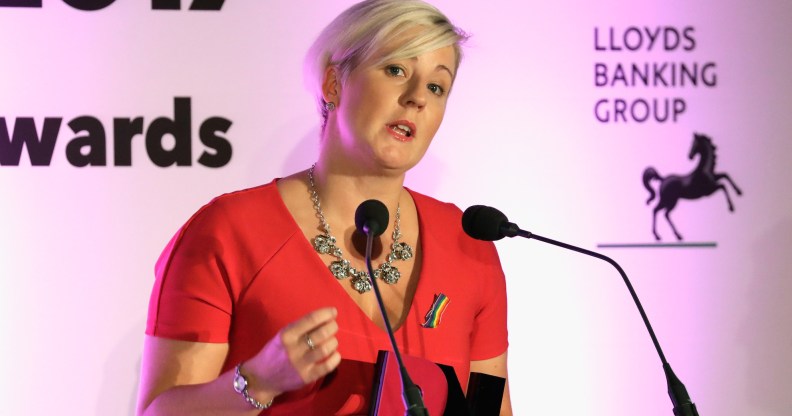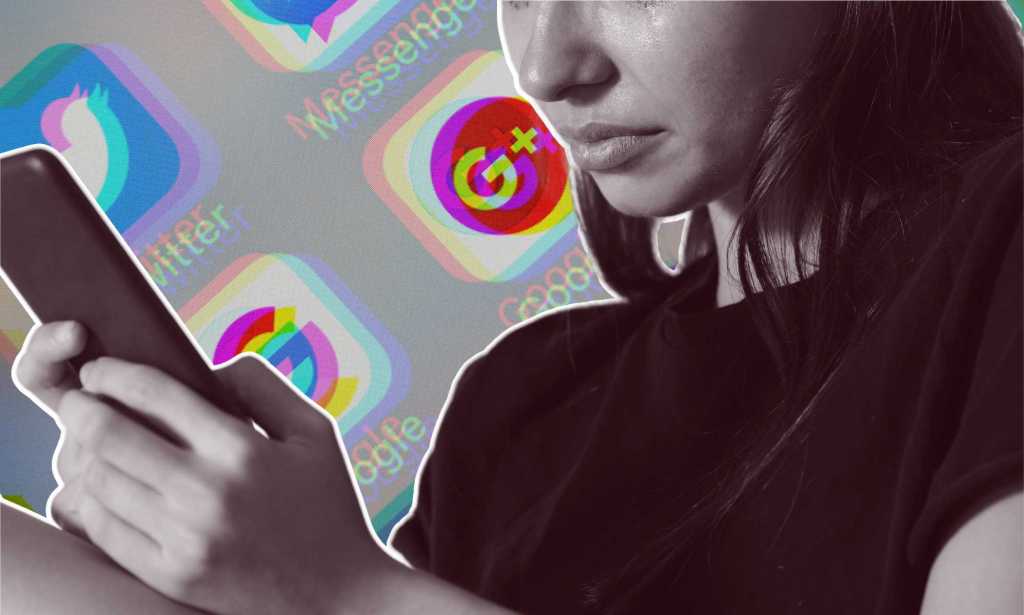Death threats left lesbian MP Hannah Bardell questioning whether job was ‘worth it’

The SNP’s Hannah Bardell tells PinkNews the situation is “stark” for MPs. (Getty)
While Hannah Bardell feels positive about the work she has done during her nine years in the House of Commons, the politician admits much of it has been at the expense of her mental health and wellbeing.
As the world marks International Women’s Day on Friday (8 March), the Scottish National Party MP for Livingston speaks frankly to PinkNews about the abuse female politicians face – which, in part, has forced her to take the decision to step back from the front bench.
Bardell, who has been the SNP’s spokesperson for digital, culture, media and sport, and for Trade and Investment, says doing high-profile media work such as the BBC’s Question Time were “pretty chastening experiences in terms of online abuse”, which she feels has become normalised.
The abuse she’s faced herself includes being the subject of death threats, when a handwritten threat was sent to Bardell’s office and another to her email. She says at the time is was distressing and made her “really stop and think about my job, and if it was worth it”.
Reflecting on the situation now, Bardell describes it as “very stark”, especially considering that since 2016 two MPs, Labour’s Joe Cox and Conservative David Amess, have been murdered while at work.

The experiences of Bardell and other MPs have been well-documented over the years, with an investigation by the BBC in 2022 finding that 3,000 offensive tweets are sent to UK MPs every day. In total, the report found 130,000 tweets mentioning MPs were considered “likely to be toxic” and 20,000 were “severely toxic”.
Research has consistently shown MPs who are female, queer or from ethnic minority backgrounds face higher levels of abuse.
A study by the Fawcett Society showed that 84 per cent of women agree that “increased polarisation in politics has made it harder to be an MP, compared with 67 per cent of men who agreed.
Meanwhile, Amnesty International revealed there was a disproportional difference in the level of abuse faced by Black, Asian and Minority Ethnic (BAME) women MPs compared with their white colleagues. Analysis of the tweets of 177 women MPs active on X, then Twitter, in the run up to the 2017 general election, showed BAME MPs received almost half (41 per cent) of the abusive content found, despite there being almost eight times as many white MPs.
Alongside this, PinkNews has covered the homophobic abuse faced by out gay MPs Kate Osborne (Labour) and Chris Clarkson (Conservative).
‘I’m a disruptive force. I’m conscious of that’
Hannah Bardell, who came out as lesbian to her family while campaigning for the 2015 general election, says much of this hostility stems from the fact that the political landscape is different to how it was only a decade ago.
“It was still kind of relatively sane, if that’s an appropriate word to use, Bardell says, adding that now it feels “actually quite difficult” to have a “reasonable and reasoned debate”.
Bardell admits to having considered stepping down altogether following David Amess’ murder at his constituency surgery in 2021, but was swayed because she wants to continue to be a voice for her constituents and feels “very strongly” that there need to be “queer voices, diverse voices, people from different backgrounds” in parliament.
“I’m a queer woman from a working-class background and a single parent family – there are not that many people like me in parliament,” she points out. “I’m a disruptive force – I’m conscious of that – just by walking through the doors every day.”
Looking ahead to the upcoming general election, she hopes people will “take a step back and recognise that having a [campaign] fuelled with vitriol and hatred is just going to turn people off even more”.
Bardell adds: “When I’ve been talking to [people], I get the sense [they] are scared. There’s a level of disillusionment, not necessarily with individual politicians but with politics in general, and folk are like: ‘Nah, I’m not going to vote’.
“I think apathy is going to be the winner at the next election unless you properly inspire people and give them a reason to come out and vote.”

